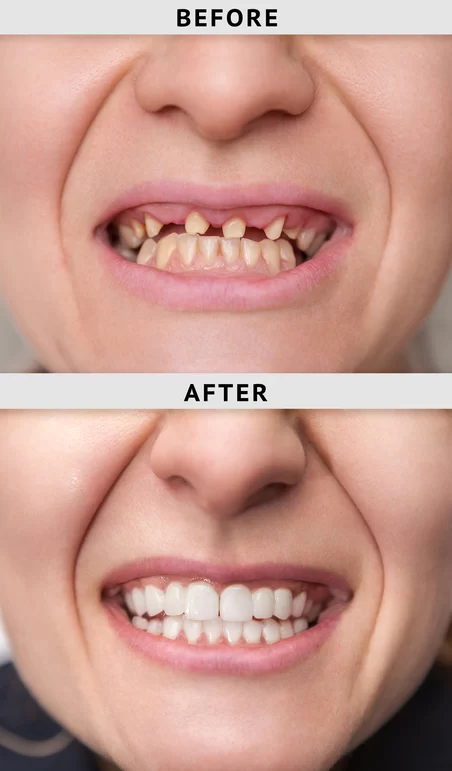
Full-Mouth Dental Restoration for Missing Teeth: Solutions and Benefits
- 1. What Is Full-Mouth Dental Restoration?
- 2. Why Is Full-Mouth Restoration Needed?
- 3. Procedures Involved in Full-Mouth Restoration
- 4. Who Is a Good Candidate for Full-Mouth Restoration?
- 5. Benefits of Full-Mouth Restoration for Missing Teeth
- 6. What Is the Cost of Full-Mouth Restoration?
- 7. How Dentistry Toothtruth Can Help You Restore Your Smile
1. What Is Full-Mouth Dental Restoration?
Full-mouth dental restoration is a comprehensive treatment designed to restore the function, appearance, and overall health of your teeth, gums, and jaw. This procedure is typically recommended for individuals who have multiple missing, damaged, or decayed teeth. It involves a combination of restorative treatments, such as dental implants, crowns, bridges, veneers, and dentures, to rebuild the entire mouth.
The goal of full-mouth restoration is to create a natural-looking smile while improving the functionality of the teeth and the overall bite. It not only enhances appearance but also improves speech, chewing, and comfort.
2. Why Is Full-Mouth Restoration Needed?
There are several reasons why someone might need a full-mouth restoration. Some of the most common reasons include:
- Severe Tooth Decay: When tooth decay becomes widespread, individual fillings and restorations may no longer be effective. A full-mouth restoration can address widespread damage and restore the mouth's function.
- Multiple Missing Teeth: If you are missing several or all of your teeth, a full-mouth restoration can provide you with a full set of teeth, improving both appearance and function.
- Trauma or Injury: Accidents or injuries that cause the loss of teeth can be fixed through a full-mouth restoration, allowing you to regain your smile and chewing ability.
- Old Dental Work: If you have old crowns, fillings, or dentures that no longer function properly or are causing discomfort, a full-mouth restoration can replace these outdated solutions with new, more effective treatments.
Full-mouth restoration is not just about aesthetics—it's also about restoring the function and comfort of your teeth, ensuring that you can eat, speak, and smile with confidence.
3. Procedures Involved in Full-Mouth Restoration
A full-mouth restoration typically involves several steps and treatments to address each of the issues contributing to missing or damaged teeth. Some of the most common procedures involved include:
- Dental Implants: Implants are used to replace missing teeth by placing titanium posts into the jawbone. These posts act as artificial tooth roots, onto which crowns, bridges, or dentures are attached.
- Dental Crowns: Crowns are custom-made caps that cover damaged or decayed teeth, providing strength and restoring their natural appearance.
- Bridges: If you are missing one or more teeth, dental bridges can be used to "bridge" the gap, attaching artificial teeth to adjacent natural teeth or implants.
- Veneers: Veneers are thin, custom-made shells that cover the front surface of your teeth to improve appearance, particularly for teeth that are discolored or worn down.
- Dentures: For patients missing most or all of their teeth, dentures (either partial or full) can restore the full functionality and aesthetic appearance of the mouth.
The specific combination of treatments will vary depending on the patient's needs, dental health, and aesthetic goals. A customized treatment plan will be created by your dentist to ensure the best results.
4. Who Is a Good Candidate for Full-Mouth Restoration?
Full-mouth restoration is suitable for individuals who have multiple dental issues that need attention, such as missing teeth, decay, or significant wear and tear. However, good candidates should have:
- Good Overall Health: Since some procedures, like implants, require surgery, candidates should be in good health to ensure proper healing and avoid complications.
- Healthy Gums: The gums need to be healthy to support dental implants and other restorations. If there are gum issues, they will need to be addressed before proceeding with restoration treatments.
- A Desire to Improve Function and Aesthetics: Full-mouth restoration is not just about looks—it's about restoring the ability to chew, speak, and smile with confidence.
If you're unsure whether you're a good candidate, consulting with a skilled dentist can help determine the best approach for your specific needs.
5. Benefits of Full-Mouth Restoration for Missing Teeth
Undergoing a full-mouth restoration has several benefits beyond just improving your smile:
- Improved Functionality: A full set of teeth allows for better chewing and speaking ability, improving your quality of life.
- Enhanced Aesthetics: Restoring the appearance of your teeth helps you feel more confident when you smile, which can have a positive impact on your self-esteem.
- Better Oral Health: By replacing missing or damaged teeth, you prevent further oral health issues, such as shifting teeth, bone loss, and gum disease.
- Long-Term Durability: Many of the procedures involved in full-mouth restoration, such as implants and crowns, offer long-lasting results that can significantly improve your quality of life for years to come.
6. What Is the Cost of Full-Mouth Restoration?
The cost of full-mouth restoration varies widely based on the specific procedures required and the complexity of the case. Factors influencing the cost include the number of implants needed, the materials used for crowns and bridges, and the geographic location of the dental practice.
While the initial cost may seem high, full-mouth restoration can be an investment in your long-term oral health and quality of life. Many dental offices offer payment plans or financing options to make the treatment more affordable. It’s important to discuss the cost with your dentist to understand the pricing structure and available options.
7. How Dentistry Toothtruth Can Help You Restore Your Smile
At Dentistry Toothtruth, we specialize in creating customized full-mouth restoration plans tailored to your unique needs. Our team of experts will work closely with you to restore both the function and aesthetics of your smile using the latest techniques and technology.
If you're considering a full-mouth restoration for missing teeth, contact us today to schedule a consultation. Let us help you achieve a healthier, more confident smile with our comprehensive dental services!
Full-mouth dental restoration for missing teeth can dramatically improve your smile, functionality, and overall oral health. If you're ready to explore this transformative procedure, visit Dentistry Toothtruth to learn more and take the first step towards restoring your smile!

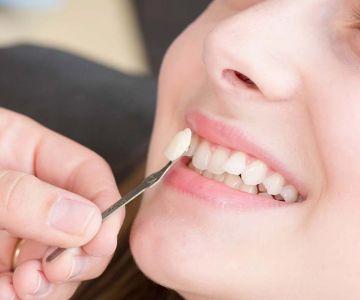
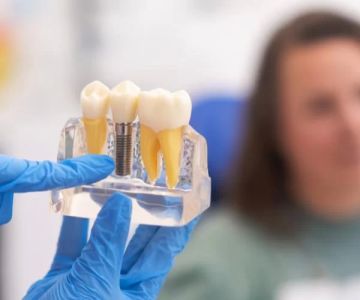

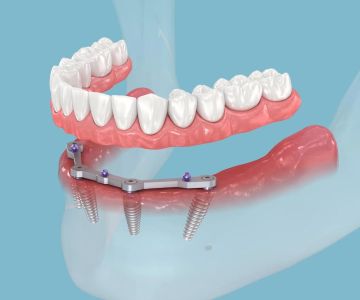
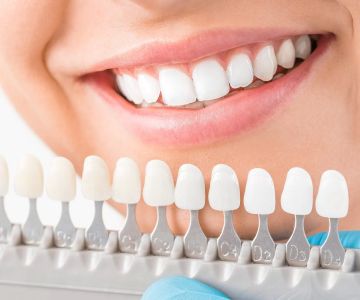
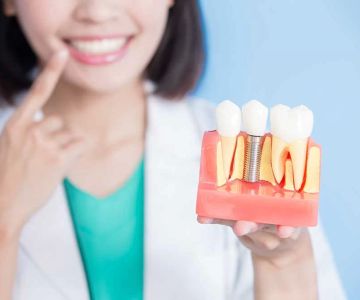
 Westgate Dental Arts
Westgate Dental Arts Coventry Family Dental
Coventry Family Dental Familia Dental
Familia Dental Dr. Daniel S. Fife, DDS
Dr. Daniel S. Fife, DDS Dentistry At Suburban Square: Michael I. Wollock, DMD
Dentistry At Suburban Square: Michael I. Wollock, DMD Comfort Care Dental
Comfort Care Dental The Importance of Oral Health Education During Pregnancy for a Healthy Pregnancy
The Importance of Oral Health Education During Pregnancy for a Healthy Pregnancy Why Skipping Dental Checkups Can Lead to Bigger Oral Health Problems
Why Skipping Dental Checkups Can Lead to Bigger Oral Health Problems Advantages of Porcelain Dental Restorations
Advantages of Porcelain Dental Restorations Best Tips for Brushing Your Teeth Properly for Healthy Gums: Essential Techniques for Oral Health
Best Tips for Brushing Your Teeth Properly for Healthy Gums: Essential Techniques for Oral Health How Can Diabetes Cause Tooth and Gum Problems? Preventing and Managing Oral Health Issues
How Can Diabetes Cause Tooth and Gum Problems? Preventing and Managing Oral Health Issues Healthy Habits for Promoting Good Oral Health and Hygiene: Tips for a Healthy Smile
Healthy Habits for Promoting Good Oral Health and Hygiene: Tips for a Healthy Smile